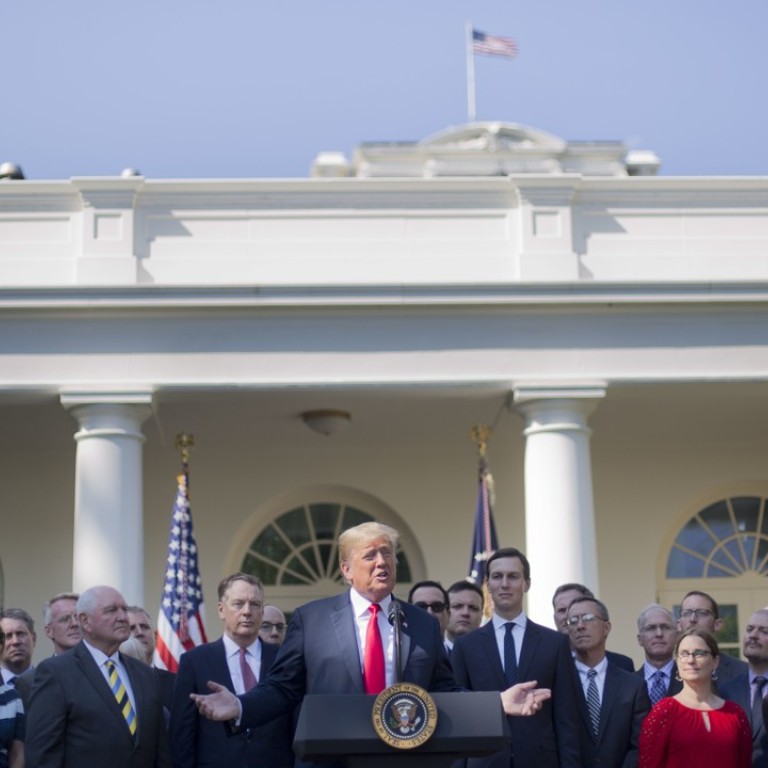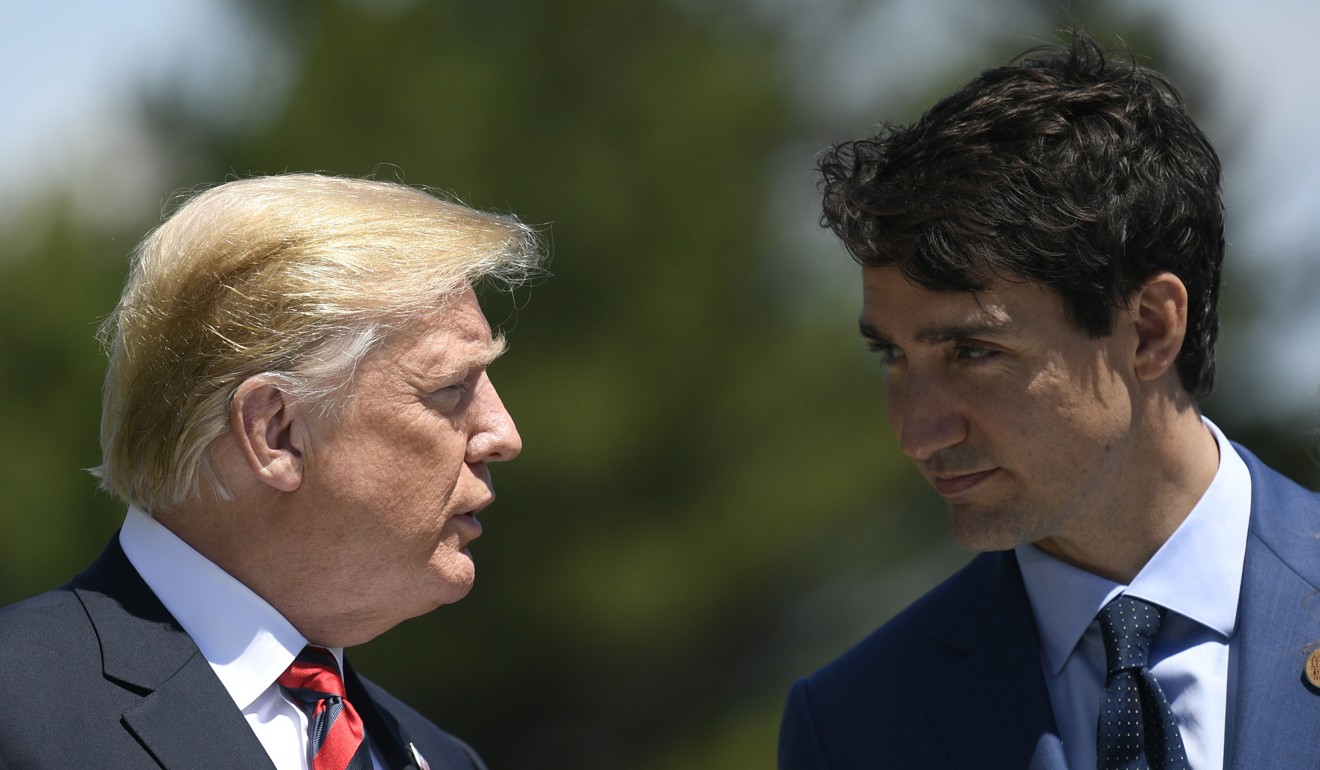
US-China trade war: Trump gets his (USMCA) clause out in Asia
- Washington’s anti-China poison pill in its trade deal with Mexico and Canada – the 32.10 clause – could be copied in agreements with Asian countries to ratchet up the pressure on Beijing
Unlikely in the near future, say regional trade experts – but China shouldn’t expect to emerge unscathed.
It might sound innocuous enough, perhaps even a little dry, but clause 32.10 in the recently concluded US-Mexico-Canada Agreement (USMCA) has got water-cooler areas across Asia buzzing with speculation that it will be replicated in future US trade deals to ratchet up the pressure on Beijing.

Trump’s commerce secretary Wilbur Ross last week signalled the provision might be replicated in upcoming trade pacts.
Asked in a Reuters interview if the US would replicate clause 32.10 in future trade deals, Ross said: “We shall see. It certainly helps that we got it with Mexico and with Canada, independently of whether we get it with anyone else.”
USMCA: for Canada and Mexico, throwing China under bus was a no-brainer
Edmund Sim, partner at the multinational trade and investment law firm Appleton Luff, told This Week in Asia he saw little immediate impact on the US’ current trade agreements with Asian countries.
Washington has trade and investment framework agreements – the initial-stage pact that leads to FTAs – with more than 20 countries across Asia.
He pointed out that the clause – as written in the USMCA – states only that the US can pull out of the pact if its fellow signatories sign up to a new FTA with a non-market economy. But it makes no mention of action against countries that already have FTAs with non-market economies.
As the US designates the country as a non-market economy, US trading partners could conceivably be penalised if they were to sign up to future trade pacts with Hanoi.
But Sim said this was unlikely in the near future, due to Vietnam’s inclusion in the 11-nation Comprehensive and Progressive Agreement for Trans-Pacific Partnership – which Mexico and Canada are both party to.
China’s trade war pain can be Asean’s gain
With that agreement likely to be ratified in January, long before the USMCA, Vietnam’s free-trade links with Mexico and Canada would be “grandfathered” or exempted from 32.10, the veteran international trade lawyer said.
“In any event, the Trump administration would be much more sympathetic to FTAs with Vietnam than with China,” Sim said.
Even so, other experts said it would be foolhardy to think China could emerge totally unscathed.
Ganeshan Wignaraja, a former top adviser at the Asian Development Bank who is now executive director of the Lakshman Kadirgamar Institute in Colombo, said if the US decided to pursue the insertion of the 32.10 clause in upcoming FTAs with Japan and the EU, the outcome would divert trade “away from economies like China and towards the US and its main trading partners”.
“It will also hasten relocation of China-centred global value chains towards Asian countries like India and Indonesia, which do not have trade agreements with the US,” said Wignaraja. ■

